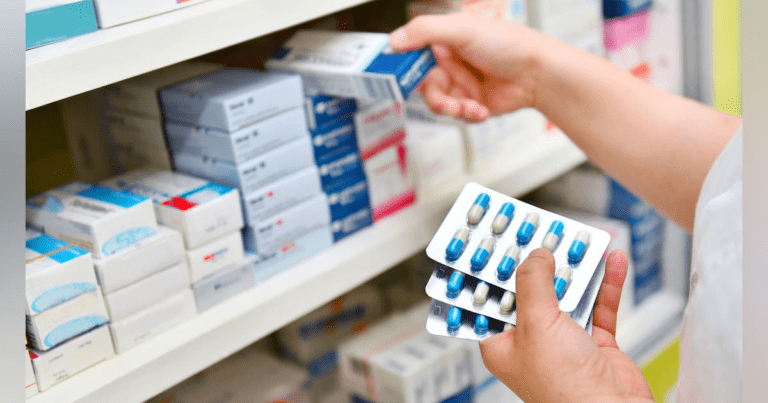Much attention has been given in the literature and news to the overuse of antibiotics in medicine and dentistry. For example, it has recently been reported that 30% of elderly patients with Medicare benefits were given antibiotics during outpatient visits for COVID-19 from April 2020 to April 2021, even though antibiotics are ineffective treatments for viral syndromes including of the virus that causes COVID-19 -19.1 In response, the National Institutes of Health just awarded the University of Texas Health Science Center at San Antonio a four-year, $2.4 million grant to conduct a clinical trial to study the responsible use of antibiotics in the treatment of periodontal disease.2
Periodontal disease is widespread and affects 40% of the US population. Because periodontitis is caused by oral bacteria in the plaque around the teeth, dentists often use systemic antibiotics in combination with scaling and root planing (SRP) of the teeth (deep cleaning) to resolve the disease. Although research does show some benefit in selected patients of adjunctive use of systemic antibiotics during SRP, it remains unclear who are the best candidates to receive these antibiotics and the risk-benefit ratio of overprescribing.3
Concerns have arisen about the indiscriminate use of antibiotics, resulting in strains of resistant bacteria or superbugs. In addition, antibiotics can be associated with significant morbidity such as drug-induced lupus, Clostridioides difficile colitis and/or fatal reactions such as anaphylaxis or Stevens-Johnson syndrome.4 Finally, Alzheimer’s disease and Parkinson’s disease are neurogenetic diseases that have recently been hypothesized to be related to gut microbial dysbiosis. It is believed that because antibiotics disrupt the balance of intestinal flora, they can be a trigger for neurological disorders, including Alzheimer’s and Parkinson’s disease, especially during old age, when immune system defenses are absent or reduced.5
Also from the author:
Antimicrobial stewardship programs that establish guidelines for the judicious administration of antibiotics have been discussed in various societies in the medical and dental fields, with the goal of reducing non-evidence-based overprescribing.6 In these programs, any protocol or alternative method that can lead to de-escalation of unnecessary antibiotic use is recommended.
The purpose of this article is to describe a pilot study involving 10 patients with moderate to severe chronic periodontal disease assigned to four SRP quadrants who used the StellaLife Vega Oral Care Recovery Kit for 10 days before starting periodontal treatment . The concentration of oral bacterial pathogens was measured before use of the recovery kit and then 10 days after use. An overall mean reduction of 22% in oral pathogen bioburden was recorded, suggesting that use of the Oral Care Restoration Kit prior to periodontal treatment may reduce the need for supplemental systemic oral antibiotics during SRP treatment.
The rationale for study
The StellaLife Vega Oral Recovery Kit consists of a natural mouthwash, oral spray and topical gel containing herbal extracts Azadirachta indicaechinacea, calendula, and propolis. The active ingredients in this treatment have been shown to have similar antimicrobial properties to 0.12% chlorhexidine without the cytotoxicity to human gingival fibroblasts and osteoblasts.7 This treatment has also been suggested to enhance oral wound healing through upregulation of type I collagen transcription.8
Another recent in vitro study suggested that StellaLife Vega mouthwash, compared to 0.12% chlorhexidine, demonstrated bacteriostatic properties without the cytotoxicity and inhibition of human gingival fibroblast proliferation observed with the use of chlorhexidine.9 Other notable side effects with use of 0.12% chlorhexidine during periodontal treatment include dysgeusia, staining, increased calculus, mucositis, and dermatitis.10 Based on its bacteriostatic properties and ability to enhance wound healing without the side effects seen with other medicated mouthwashes, a pilot study was created to evaluate the ability of these substances to reduce oral pathogen bioburden prior to SRP for reduce the potential need for adjunctive systemic antibiotics.
Study
Ten patients diagnosed with generalized chronic moderate to severe periodontal disease (stage III or IV grade B)11 with bleeding and plaque index 3 treatment planned for four SRP quartiles were enrolled in this pilot study. The age range of patients in this study was 35-75 years with no current history of smoking, diabetes and/or any immunosuppressive disorders. After signing the informed consent, a saliva sample was obtained from the patients and submitted for oral DNA analysis. Patients were then instructed in oral hygiene and given the StellaLife Vega Oral Recovery Kit. Patients were instructed to use the rinse three times daily for 60 seconds, three pumps of the spray sublingually (under the tongue) three times daily, and then, with a clean Q-tip, rub the gel into the buccal and palatal/ lingual gum tissue three times a day.
Oral DNA test
The Oral DNA Test (OraVital Biofilm Diagnostics Microbiology Lab) obtained measurements of specific types of bacterial levels from five different areas of the mouth per


